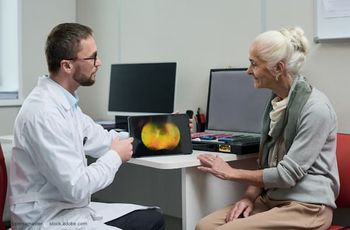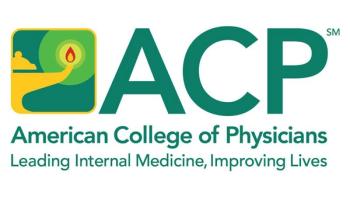
Subretinal gene therapy safe with visual benefit
This study provided clinical proof of concept for viral vector-mediated gene supplementation therapy of inherited day blindness caused by pathogenic variants in the cone photoreceptor-specific gene CNGA3.
A novel gene therapy treatment may hold promise for treating an inherited ocular disease, achromatopsia, after a study found it provided some visual improvements in treated patients.
The disease, for which there is no current treatment, affects the retinal cone receptors, and is characterized by day blindness, glare, poor vision, nystagmus, and partial or total absence of color vision. Affected patients have no cone response from birth, which is in contrast to the more common types of color blindness that result from changes in the opsin genes that only impact patients’ efficiency with which they detect light frequency or wavelength, according to M. Dominik Fischer, MD, PhD.
Fischer is professor of ophthalmology at the Oxford University Hospitals NHS Foundation Trust, Oxford, UK and at the Centre for Ophthalmology, Eberhard Karls Universität Tübingen, Tübingen, Germany, and lead author of the study.
“Members of the RD-CURE consortium have started to look into achromatopsia already 25 years ago, identifying its genetic basis and developing treatment options,” he said.
Achromatopsia had previously been considered to be nonprogressive; however, recent research has identified structural changes with increasing age that investigators found to be consistent with slowly progressive deterioration and loss of the cone photoreceptor cells.
Ninety percent of cases are associated with variants in 6 genes, and the most prevalent of these variants are in 2 genes, he explained, that encode the α _and β _subunits of the cone cyclic nucleotide-gated channel, CNGA3 and CNGB3. The former occurs in from 25% to 28% of cases in Europe and the United States and the latter in half of cases.
“The CNG channels are essential components of the phototransduction process in cone photoreceptors, which enable daylight vision, high spatial and temporal resolution, color discrimination, and stable fixation,” Fischer said.
Fischer and his colleagues conducted an open-label exploratory, nonrandomized, controlled trial to determine the safety and efficacy achieved with one subretinal injection of gene vector therapy adeno-associated virus CNGA3. Three doses of the therapy were tested, 1.0 x 1010 vector genomes (vg), 5.0 x 1010 vg, and 1.0 x 1011 vg. Three patients each received one of the doses. The study patients, all of whom had confirmed achromatopsia and variants in CNGA3, then were followed for 12 months.
The primary outcome was safety and the secondary outcomes were changes in visual function, including spatial and temporal resolution and chromatic, luminance, and contrast sensitivity over the 12 months of the study.
R E SULT S
The study included 9 patients (8 men, 1 woman; mean age, 39.6 years). The surgeries were performed with no complications; no substantial safety issues arose during the follow-up period.
The investigators reported, “despite the congenital deprivation of cone photoreceptor-mediated vision in achromatopsia, all 9 treated eyes demonstrated some level of improvement in secondary end points regarding cone function, including mean change in visual acuity of 2.9 letters. Contrast sensitivity improved by a mean of 0.33 log.”
This study provided clinical proof of concept for viral vector-mediated gene supplementation therapy of inherited day blindness caused by pathogenic variants in the cone photoreceptor-specific gene CNGA3.
“While all applied dose levels showed some benefit, we will continue with the highest tolerated dose in a phase IIb trial,” Fischer said.
This next investigator-led trial looks at the feasibility of earlier treatment in patients who are about 7 to 8 years of age to determine whether earlier intervention will provide greater benefit.
Newsletter
Keep your retina practice on the forefront—subscribe for expert analysis and emerging trends in retinal disease management.




























